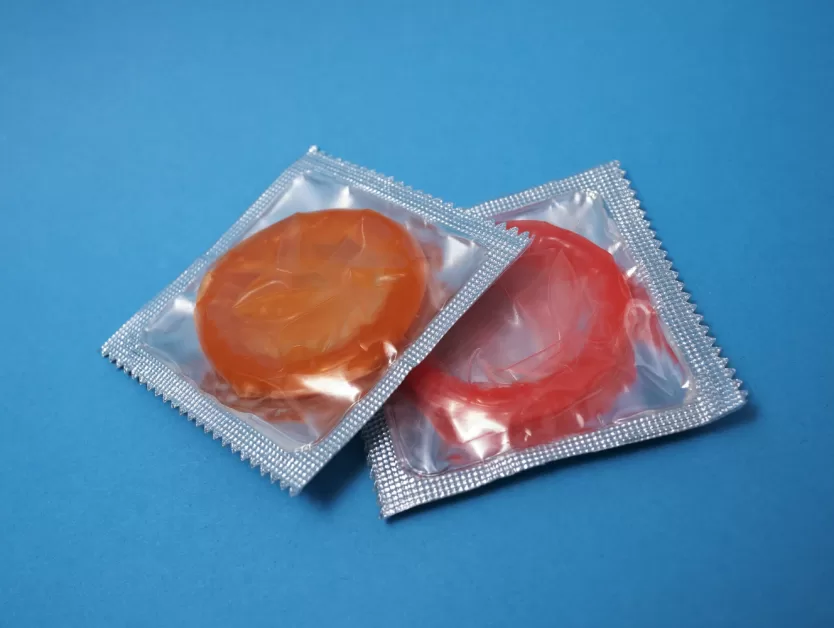Condoms are the most popular firm of contraception, but are they biodegradable?
Millions are used every year which makes their environmental impact considerable. Because of this, awareness needs to be raised to ensure they’ve being disposed of responsibly and sustainably.
Are Condoms Biodegradable?
Some are and some aren’t. It depends on the material they’re made from. As you might be aware, some condoms are made from latex but some are made from other materials such as polyurethane and hemp.
Are Latex Condoms Biodegradable?
No, latex condoms are not biodegradable. Only 100% pure latex rubber is biodegradable, and latex condoms are usually made from a latex mix which contains other chemicals and ingredients.
This is done to make them perform better which unfortunately has a negative affect on their eco friendly properties.
Latex condoms will not biodegrade naturally in an acceptable amount of time.
Are Polyurethane Condoms Biodegradable?
No, polyurethane condoms are not biodegradable. Polyurethane is a type of plastic, and as we know, plastic isn’t biodegradable.
Polyurethane condoms are a good option for sufferers of latex allergies.
Are Polyisoprene Condoms Biodegradable?
No, polyisoprene condoms are not biodegradable. Polyisoprene is a synthetic form of latex and as with most synthetic materials, it does not naturally biodegrade.
Another great option if you have a latex allergy. They’re also cheaper than polyurethane condoms and some say more comfortable.
Are Nitrile Condoms Biodegradable?
No, nitrile condoms and femidoms are not biodegradable. Nitrile is a form of synthetic rubber which means that it won’t decompose or biodegrade naturally.
The only nitrile condom available is the FC2 which is actually an internal condom or female condom.
What is interesting about nitrile condoms is that they can be reused according to various studies. Simply wash them, dry them and then relubricate them. This can be done a few times before they are disposed of.
Are Lambskin Condoms Biodegradable?
Yes, lambskin condoms are biodegradable. They are made from sheep intestines rather than skin. This means they will biodegrade naturally over time.
Although they biodegrade, we wouldn’t recommend trying to compost them.
One important fact to know is that lambskin condoms should also be used to protect against unwanted pregnancy. STIs and STDs can still transfer through lambskin condoms so be careful where they are used.
Are Condoms Reusable?
Condoms are designed to be single use only. They are not robust enough to provide protection for more than one use. They also cannot effectively be cleaned between uses.
The only exception to this is the nitrile internal condom. Because they are made from synthetic rubber, nitrile condoms can be reused if cleaned properly.
Are Condoms Recyclable?
No. Condoms are a hygiene product that are designed to be thrown away. There is no recycling program available for used condoms.
Because of this some manufacturers are trying to produce more environmentally friendly condoms. The intention is to produce a safe and effective condom that does biodegrade, but that goal is still a few years away.
How Long Do Condoms Take to Decompose?
Most condoms are made using adulterated latex, which means their decomposition process is slow. Despite latex or rubber being naturally biodegradable, composting condoms would take a very long time.
Non-latex condoms are usually made from polyurethane, which is a synthetic non-biodegradable plastic. This means they will never break down
Little research is available on this topic, but the general consensus is that it could take upwards of 1000 years for condoms to decompose in landfill, even given the right conditions.
Despite this, condoms are safe for the environment and their purpose is an important one.
How Do I Dispose of Condoms?
The best way to dispose of condoms is to wrap them in toilet tissue and throw them into the bin. Never attempt to flush them down the toilet as they can cause blockages.
Condoms should not be composted either. They don’t break down naturally and shouldn’t be used in your garden.
How Not to Dispose of Condoms
Never dispose of condoms in water. This includes, your household drains as well as rivers, lakes, seas and oceans.
Condoms are fairly durable and will cause direct harm to wildlife and marine life if they swallow them or become dangled up in them.
Never dispose of them in the street or outside. Doing so is unhygienic and they are guaranteed to end up in places they shouldn’t.
Are Condoms Eco Friendly?
That depends on how you look at it.
Condoms help to control the overall global population level, which is the single biggest contributory factor to the future of this planet. From this point of view, condoms have a positive environmental impact.
On the other hand, any product or material that has the ability to survive for hundred or thousands of years without decomposing can be seen as bad for the environment.
Some Companies Make Eco-Friendly Condoms
Brands such as HANX, who are gynaecologist-approved, make vegan and biodegradable condoms using fair-trade rubber. Fair Squared is another vegan condom brand that also uses natural latex and fair-trade rubber.
Fair Squared condoms have actually been tested to the highest international standard (ISO 4074) which is confirmation of their safety and quality.
Conclusion
While they aren’t biodegradable, condoms have a fairly limited environmental impact providing they are used of and disposed of properly.
Innovative companies are coming up with new materials and processes which will make condoms even better for the environment over time.
